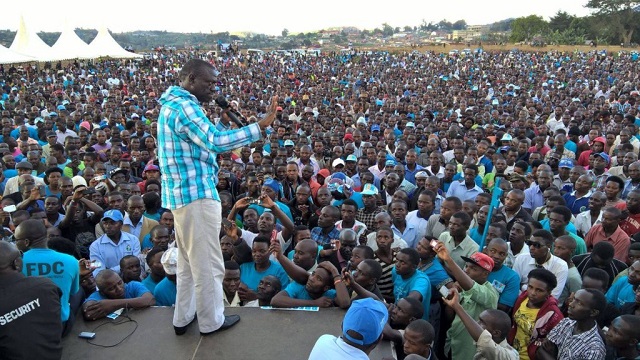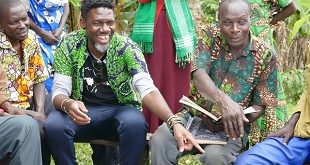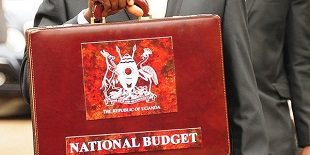
Now that the Electoral Commission is reconstituted, this Mail & Guardian article traces Uganda’s journey to accepting violence as the highest form of political organising.
POLITICS | ANALYSIS | In 1971, a young university student wrote a thesis on Frantz Fanon’s ideas on violence as the highest form of political organising. This student would later become the president of Uganda, seizing power through the gun and then holding onto it through a combination of electoral and military dominance for 38 years and counting.
Looking at the nature and role of Uganda’s security service today, the young Yoweri Museveni (now 78 years old), with no institutional military training, was an unlikely candidate to build the estimated 55 000-strong army that currently exists. In 1986, international press reported that the National Resistance Army rebel group he led to violently overthrow the government was the first to do so without soldiers looting citizens’ property.
Today, the security forces are a major source of pride for President Museveni and are the institution against which all others are measured and made subordinate. Museveni, who prides himself as an original thinker with history and military strategy as pet subjects, has entrenched the military as a centralised institution united by his influence, control and vision.
Keen to make sure power is never concentrated in one institution or one person, the Museveni presidency has created a litany of security organisations nestled under the UPDF, including the Special Forces Command, the Uganda Police, the Local Defense Unit, the Chieftaincy of Military Intelligence, the Internal Security Organisation, the External Security Organisation, the Joint Anti-Terrorism Task Force, the Joint Intelligence Committee, Rapid Response Unit, State House Counter-Intelligence Unit and Political Intelligence Network.
The president has established a culture in which both high and low-ranking soldiers and officers in different security agencies brief him on the same subject. In 2015, the renegade General David Sejusa admitted that he spent eight years as coordinator of intelligence services, but only met the president thrice. In all that time, his juniors frequently briefed the president without Sejusa’s knowledge.
Similarly, despite an established formal local government structure, Museveni increasingly relies on Resident District Commissioners, who serve as the heads of security at the district level and report directly to the president’s office on matters in any given district across the country.
In this way, Museveni has built a security sector whose pockets of influence are indifferent to hierarchical rules that come with rank and title but united in their purpose to protect the political space, ambitions and power of the ruling party and the presidency.
One of the roles that the security agencies play is to fuel the political intelligence machine that protects and maintains the presidency.
Like the 2021 election, as the 2026 election approaches, the demand and danger of an insatiable political intelligence machine grows with it. Intelligence operatives, sections of the army and police are involved in collecting and at times fabricating information on political actors, their supporters and members of the international development community, which is used as a justification for political and electoral violence.
The role of security forces and agencies in Uganda’s political past and a looming political transition, their changing role and impact of their partisan involvement are a core part of the country’s politics.
It has become a matter of course that different branches of the security service are a visible and threatening part of the pre-election, election day and post-election process in Uganda. It is also increasingly obvious that beyond securing the electoral process and citizens, the presence and role of the security service is political and viewed by political parties, candidates and voters as partisan.
Any political actor considering a change of power needs to be aware of this reality that underpins Uganda’s political system. Unjustified and inappropriate interference by security forces in the elections and broader political process, encouraged by noncompliance with barely adequate legal and institutional frameworks, will constitute one of the major problems to comprehensive political reform in Uganda.
The politicisation of soldiers
Long before Museveni became president, he criticized the militaries of previous administrations for lacking an ideology.
Speaking at the fifth anniversary of the ruling party in 1991 and paraphrasing from one of his political mentors (China’s Mao Zedong), Museveni said he attached “the greatest importance to the politicisation of our soldiers”. Indeed, within Uganda’s borders, the army and its affiliate institutions such as the police and intelligence agencies play a role that goes well beyond protecting citizens and keeping law and order.
Museveni professionalised the armed forces by insisting on the promotion of educated soldiers.
Military officers were part of the Constitutional Assembly that produced Uganda’s landmark 1995 constitution and allowed military representation in parliament. Museveni’s stance was that the army be actively involved in shaping a constitution because they would later be called on to defend it.
Museveni has also broken the financial ceiling to make the Uganda People’s Defense Force (UPDF) one of the best-trained and well-equipped military establishments in the region. The army has had tours in the Democratic Republic of Congo, Somalia, Central African Republic and South Sudan.
The military has involved itself in the business of agriculture, manufacturing, engineering, construction, emergency service response during natural disasters and in 2014; it announced it would take over the management of the Miss Uganda beauty contest. Nevertheless, the most overt and insidious of the UPDF’s extra-circular roles within Uganda’s borders has been its involvement in partisan political contestation in Uganda.
The army has 10 representatives in parliament, who are initially nominated by the president as commander-in-chief. The constitution obliges officers and men of the UPDF to be non-partisan, but the army maintains the position of a political commissar within its administrative elements. The political commissar is a position that did not exist in previous administrations and is responsible for the political education of UPDF officers. The position was created because Museveni did not envision the military as a neutral player in the country’s politics.
How the UPDF can have representatives in a parliament under a multiparty political system and still claim to be nonpartisan has remained one of the most contentious issues of Uganda’s politics. The partisan nature of Uganda’s security forces is made even more evident by the actions of the army, police and branches of the intelligence service at critical points in Uganda’s politics and electoral journey.
Orders from above, violence begets violence
In 2000, Bidandi Ssali, a former National Resistance Movement insider, said the military would not have allowed a handover of power to an elected president in 2006. After the 2001 elections, Colonel Noble Mayombo, chief of military intelligence and director general of the External Security Organisation, mounted a public harassment campaign against former presidential candidate Kizza Besigye that resulted in Besigye fleeing the country.
When he broke ranks with Museveni, Besigye claimed he had 90% support in the military. A historical member of the ruling party’s National Resistance Movement, Besigye was eventually charged with treason and has since had numerous violent encounters with the security service as one of the country’s leading opposition figures.
Between 2003 and early 2005, the state arrested a number of alleged rebels, some reportedly from the Democratic Republic of Congo and others from different parts of Uganda. Some 22 of the alleged rebels would come to the fore of one of the bitterest controversies in Uganda’s judicial history.
The rebels, including Kizza Besigye’s late brother Musasizi Kifeefe, were detained in different military facilities without charge until Besigye was arrested shortly after his return to the country from a self-imposed exile in South Africa. The accused, together with Besigye were then jointly charged with treason and Besigye with an additional separate charge of rape, allegedly committed in 1997.
In November 2005 during a bail hearing for the 22 accused, armed men in masks laid siege to the high court. Until that time, the so-called Black Mambas, who had been trained to deal with terrorists, were barely known as a security unit. Major Felix Kulaigye (then), the UPDF spokesperson, said the Black Mambas had been deployed at the high court to re-arrest the 22 suspects because they had new charges to face before the army’s general court martial.
The suspects chose to be returned to the maximum security prison at Luzira instead of being re-arrested by the Black Mambas. The actions by the security forces were widely condemned as blatant interference in the independence of the judiciary.
Of course, history would repeat itself two years later, in March 2007, when armed security forces stormed the high court in Kampala to re-arrest five men released on bail after 15 months of detention. The men were part of a group of individuals accused of being rebel group People’s Redemption Army (PRA) suspects, who were charged with treason alongside the then-president of the opposition Forum for Democratic Change, Kizza Besigye, for alleged membership in a rebel movement.
The Uganda police force has not escaped this entanglement with the military and in political contestation. Over the years, military officers have been appointed by Museveni’s government to head top police departments; especially the inspector general of police and deputy inspector general of police positions. The former deputy inspector general of police, Brigadier Sabiiti Muzeyi, a former commander of the military police, after the November 2020 riot in Kiseka market, Kampala explained, “with the contemporary nature of crime that police is faced with, the lines between the roles of police and the army is getting thinner”, and insists that “police must be ready to perform the functions of a military force”. As the Uganda Law Society and opposition members warned, the military nature of the police force has “increased acts of impunity and violence against citizens” and most especially against political actors.
At the height of 2021 general elections, the Uganda police force set up a new Violence Suppression Unit to “guard” TV and radio stations that hosted politicians during the 2021-election campaign. It was part of the efforts to stop crowds gathering outside media houses in violation of the country’s curfew and Covid-19 regulations. Media houses were required to submit the names and show times of the politicians they want to invite to the police unit beforehand to avoid officers arresting their guests for flouting curfew guidelines. In July 2020, opposition lawmakers Ibrahim Ssemujju Nganda and Betty Nambooze were forced to spend a night at a TV station following a live show after police were deployed outside to arrest them.
In recent years, the office of the resident district commissioner (RDC) has come into the national conversation for active involvement in the electoral process. Just like the army and police, the RDC position has evolved over time since the war that brought Museveni to power but its core function is to serve and protect the presidency. RDCs were initially civil servants meant to follow the public service standing orders and not become involved in partisan politics. However as partisan politics became more established, RDCs backed Museveni and his chosen Movement candidates. RDCs in some parts of the country played a prominent role in the process of mobilising party members as the Movement system evolved into the NRM party.
Consequently, Museveni’s government amended the constitutional provisions for RDCs in 2005, removing the requirement that they were to be selected from civil servants. RDCs became political appointees answerable solely to the president, which has since allowed them to become involved in partisan politics. During the election period, RDCs are notorious for harassing and detaining opposition political actors, profiling alleged opposition supporters and their business links, directing the activities of the security agents at the district level and issuing orders to prevent opposition politicians from appearing on radio talk shows.
The road to hell is paved with grand ambition
Elections are one of the leading causes of instability in Uganda. The electoral commission, security forces, institutions in charge of electoral disputes, media professionals and even ordinary citizens are all potential perpetrators of violence.
As Ugandans prepare to go to the polls in 2026, the involvement of security agencies in the electoral process is a given. In addition, it appears that all issues arising from a flawed electoral process, an inadequate legal framework, a partisan electoral commission combined with the mistrust of political actors and citizens are resolved by security agencies. This reality perpetuates the partisan role, presence and participation of the security service in the electoral process.
The increasingly political and partisan role that security forces and agents play in the electoral and wider political process in Uganda is what should be addressed.
Over the years, the Museveni administration has relied on intimidation and violence to maintain its rule, primarily through the security service. Among other indicators, the government has increased expenditure on the military, militarised the police, devolved more power to the office of the RDC, harassed, arrested and detained opposition candidates on trumped up charges of terrorism, sedition, and treason, set up a number of state security agencies and groups to intimidate the judiciary, parliament and citizens, and mounted a visible campaign to suppress journalistic freedom.
The perception of Uganda’s security forces as partisan and committed to maintaining the political status quo has not been helped by the idea among the public, and especially the political opposition that the security forces are systematically associated with the ruling party and are always on the side of the government.
This perception is not helped by pictures, videos and scenes of police officers, anti-riot police and crime preventers breaking up opposition rallies, storming party meetings and district security officials threatening media houses with closure for hosting opposition politicians on radio talk shows based on “orders from above”.
In the end, the young Museveni has achieved his grand vision to politicise the security agencies. Just like Voltaire said of the Prussian army, whereas some states have an army, the Ugandan army has a state.
The question for Ugandan political actors and watchers is where this road leads, not only for Uganda’s fraught electoral processes but also in how these multiple and competing security agencies and actors feed the ambiguity and contradictions that maintain the presidency and subdue necessary negotiations on political reform.
*****
 The Independent Uganda: You get the Truth we Pay the Price
The Independent Uganda: You get the Truth we Pay the Price


